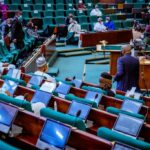There were deep sighs of relief when the news went around on Saturday evening of penultimate week that the Economic Community of West African States (ECOWAS) had lifted the sanctions it had imposed on Niger Republic after the July 2023 military coup which toppled its democratically-elected president, Mohamed Bazoum. This meant that from Nigeria’s point of view, the opening of borders with Niger Republic and the restoration of the age-old relationship that the ECOWAS sanctions had soiled. Already, power supply that had been cut from the Nigerian source has been restored even though the border opening still awaits documentation to effect it.
Many frenetic outpourings of activities in the days leading to the capitulation of ECOWAS, have led one to believe that there could only have been one answer to the diplomatic quagmire we dug ourselves into.
In late January, Niger Republic, along with Burkina Faso and Mali, announced their decision to quit ECOWAS, snubbing all entreaties to abandon military rule and return to elected civilian administration. Since then, it has become manifest to ECOWAS that the strong-arm tactics it adopted in dealing with these recalcitrant member states are not working. The soldiers have tasted power and were not ready to let go.
With time on their side, the military rulers consolidated their power and having gained the confidence of their populace were in a position to be truculent to whatever threats coming from ECOWAS. In any case, the Niger Republic military rulers knew that the capability of the members of ECOWAS to attack them is rather diminished as most of them face one strife or the other within their borders. They also knew that the sanctions imposed on them were vastly unpopular in the northernmost states of Nigeria with whom they share the longest border, intimate association of history, language, religion and trading relations. They would bide their time.
- War on Gaza: Israel kills Palestinians collecting aid
- Customs opens 90-day window for vehicle import duty regularisation
An impasse had developed which became a veritable dilemma for the ECOWAS leadership. Fortunately, Nigeria’s former head of state, General Yakubu Gowon threw in a lifeline. He was one of the founding fathers of ECOWAS in 1975. Verily out of the 15 heads of state to have signed the treaty setting up ECOWAS, he would be the last man standing. When the three countries announced their withdrawal, General Gowon felt it was time to speak out. And he did it with the right dose of statesmanship. General Gowon, many would have observed over the years, has been rather taciturn on political issues. Unlike a few heads of state that came after him, the general would rather give a piece of quiet advice and that is when requested. Maybe the spectre of seeing one of the lasting legacies of his administration being rubbished gingered him into action.
After brisk visits to both the Chairman of ECOWAS, President Ahmed Bola Tinubu and the President of ECOWAS Commission, Omar Touray, General Gowon released the letter urging both ECOWAS and the three recalcitrant countries to sheath their swords and embrace dialogue. He specifically asked ECOWAS to lift the sanctions imposed on the three countries and also urged the affected countries to rescind their decision to pull out of ECOWAS.
It was the clarion call awaited and it spurred ECOWAS to immediate action. ECOWAS is fast approaching its 50th anniversary coming up on May 25, 2025. One, therefore, can understand the genuine misgivings of General Gowon at the possibility of its breakup.
In the early 1970s when the idea of an economic union for the West African sub-region cropped up General Gowon was at the forefront propagating its utility, along with President Gnassingbe Eyadema of Togo and President Leopold Senghor of Senegal. The European Economic Community which has existed since 1957 was a shining example and provided the way to go.
Nigeria was at the height of its economic boom and the power of its say-so in the West African sub-region. There was a consensus to the proposed economic union and 15 countries met in Lagos on May 25, 1975 to ratify the agreement. Over the years ECOWAS had consolidated and blossomed realising most of the visions of the founding fathers, such as a common passport, open borders, increased trade and the construction of roads between member states. Unfortunately, ECOWAS has yet to achieve a common currency which would have eased trading relations among the member states.
Despite these failings, President Tinubu should hold on to the lifeline thrown in by General Gowon and other people of goodwill. ECOWAS is an ongoing project that he should work on to its completion. President Tinubu has demonstrated goodwill by restoring the power supply and can now work to complete the border opening. There will be other matters arising because ECOWAS’ act of goodwill is unilateral. This act of goodwill would be short of the fulfilment of the preconditions set to the junta in Niger Republic at the onset of the problems. Hopefully, the military leaders in Niamey will downplay their belligerency, see reason and return to the fold.
ECOWAS must make the release of President Mohammed Bazoum and his wife a top priority. They must also wrest a realistic programme of a return to democratic civilian rule from the soldiers. Other matters of mutual benefit such as the opening of closed airspace and border security protocols can be thrown in.
On Sun, Mar 3, 2024 at 7:22 PM Yusuf Zango <[email protected]> wrote:

 Join Daily Trust WhatsApp Community For Quick Access To News and Happenings Around You.
Join Daily Trust WhatsApp Community For Quick Access To News and Happenings Around You.

